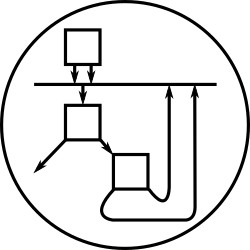pregexp over streams, and other random hackery
This page is a mirrored copy of an article originally posted on the (now sadly defunct) LShift blog; see the archive index here.
Tue, 11 October 2005
Over at eighty-twenty I recount a couple of recent random excursions into various bits and pieces of code.
Besides those developments, I also spent some time on Sunday morning modifying Dorai Sitaram’s pregexp version 20050502 to operate over streams as well as strings, so that I could use it for lexing arbitrary character sources (for instance, with the packrat parser library I’ve been developing).
The basic interface, after the patch, is now either the standard
(pregexp-match <pattern> <string>)
or the new
(pregexp-match <pattern> <stream>)
where streams are created with
(pregexp-make-stream <generatorfunction> <seed>)
I’ve also added a procedure pregexp-match-head, which is like
pregexp-match-positions except it only matches at the very beginning of
the input string or stream; pregexp-match-head behaves like Python’s
re.match, where pregexp-match-positions behaves like Python’s re.search.
I haven’t modified pregexp-split, pregexp-replace, or pregexp-replace*,
partly because I have no need for them for my application and partly
because I’m not sure what their behaviour should be: should
pregexp-replace, when given a stream, answer a stream, or a string? In
the case of pregexp-split, since it has to examine the entire input in
any case, supporting streams seems unnecessary. (Perhaps I should have
included a pregexp-stream->string utility, though.)
The patch against version 20050502 is downloadable here.
Thanks to Dorai for a great library!
Update: I noticed a bug in the first revision of the patch. I’ve updated the links in the article above to point to the new patch.
